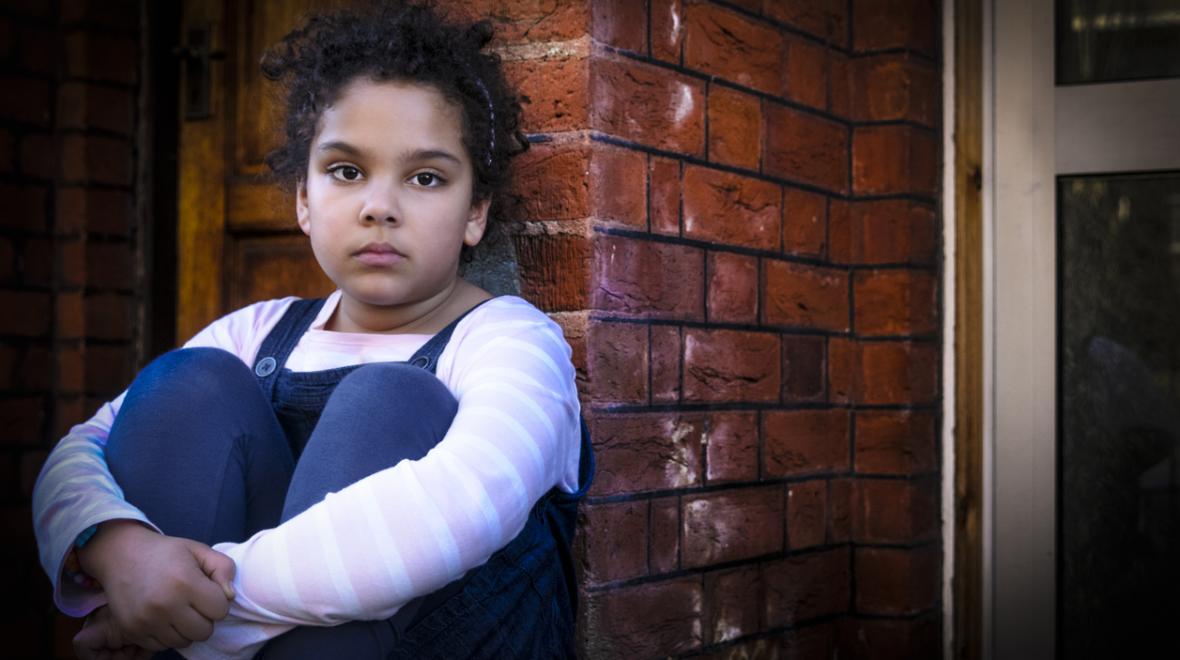
Editor's note: ParentMap publishes articles, op-eds and essays by people of all experiences and from all walks of life. The opinions expressed in their articles are their own and are not endorsed by ParentMap.
After the last presidential election, my 10-year-old daughter came home and told me her friend declared that we need to “go back to our real country.” She was confused because we are and always have been citizens of the United States.
At her young age, she's already suffered bigotry and oppression from her classmates. It's left me wondering: How do you cultivate compassion in children with a social and political climate that centers on vitriol and division?
My wife is a gender non-binary person and I’m a queer Black femme with disabilities. We have three kids and one on the way. It’s safe to say that our little motley crew experiences our fair share of discrimination and judgement in our conservative home state of Arkansas. My wife and I prioritize centering compassion and empathy in how we raise our children because we understand as marginalized people how easily these reflexes can be bullied out of them. We tell our children when we feel afraid. We express grief and regret in front of them. It is through mutual vulnerability that we’ve raised young people who are powerfully compassionate.
We prioritize empathy in how we raise our children because we understand how easily these reflexes can be bullied out of them.
We never know when a moment to teach empathy will arise. Not long after the election, I pulled up to the school pickup line and immediately surveyed my 6-year-old daughter Addison's face from the driver’s seat. She stood in line with her peers busy around her. Her shoulders sunk low and her eyes were dulled. Her usual spark of pixie-like energy was nowhere to be found.
She walked around the car and got into the backseat. She slowly buckled her seatbelt and then rested her head on her hand and stared away out the window. She looked wounded. I resisted the urge to interrogate. I could tell her feelings were hurt; the discomfort in the car was palpable. I wanted to pull the car around and find out the name of the 6 year old that hurt her feelings — and then go fight their parents. Our whole 20 minute drive required intense self-control. Everything in my head screamed, “FIX IT.” But sitting with the pain is an integral part of helping our children cultivate empathy and compassion.
By the time we arrived home and sat at our family kitchen table for after-school snacks, I knew it was time to ask the important question. This question can open up a productive dialogue or shut it down, so I always attempt to be intentional with my approach. “Hey Addy,” I calmly smiled at her, “it looks like you might be in pain. Would you like to talk about it?” My tenderness pierced through her stoic demeanor. Her face curled up in pain and tears began to pour. “They said I couldn’t be a princess because princesses aren’t Black. I could be a helper to a princess, not a princess," she howled.
This was a big deal to a 6 year-old girl. Instead of dismissing her discomfort as girl drama, I leaned into the pain and reflected with her. I explained how it felt to be left out when I was a child. I confirmed that I still get left out as an adult and it’s incredibly painful at times. I held her hand and softly asked her if that was all she wanted to share. The wailing increased an octave and she screamed: “THEY SAID I AM NOT NORMAL BECAUSE I HAVE TWO MOMS.” There it was: The violent combination of racial bias and homophobia had wounded Addison.
Still, I resisted the urge to fix it. I reminded her of our values. I validated her suffering. I reminded her that her family was her safe space and that she had what it takes inside of her to never treat others the way she has been treated.
I reminded her of our values. I validated her suffering.
We do this kind of work over and over with our children in order to make sure they remain the compassionate people they born to be. It isn’t until they get older that trauma, divisiveness and struggle conditions responses that lack connection and compassion.
In my daughter’s situation, it would be easy for her to harden her heart after feelings so wounded. We resist the urge to diminish our compassion for others, even in our pain. I know that empathy is that magic ingredient required to raise children who are ready to transform the world for the better — and I believe we are raising children who are prepared to do just that.











